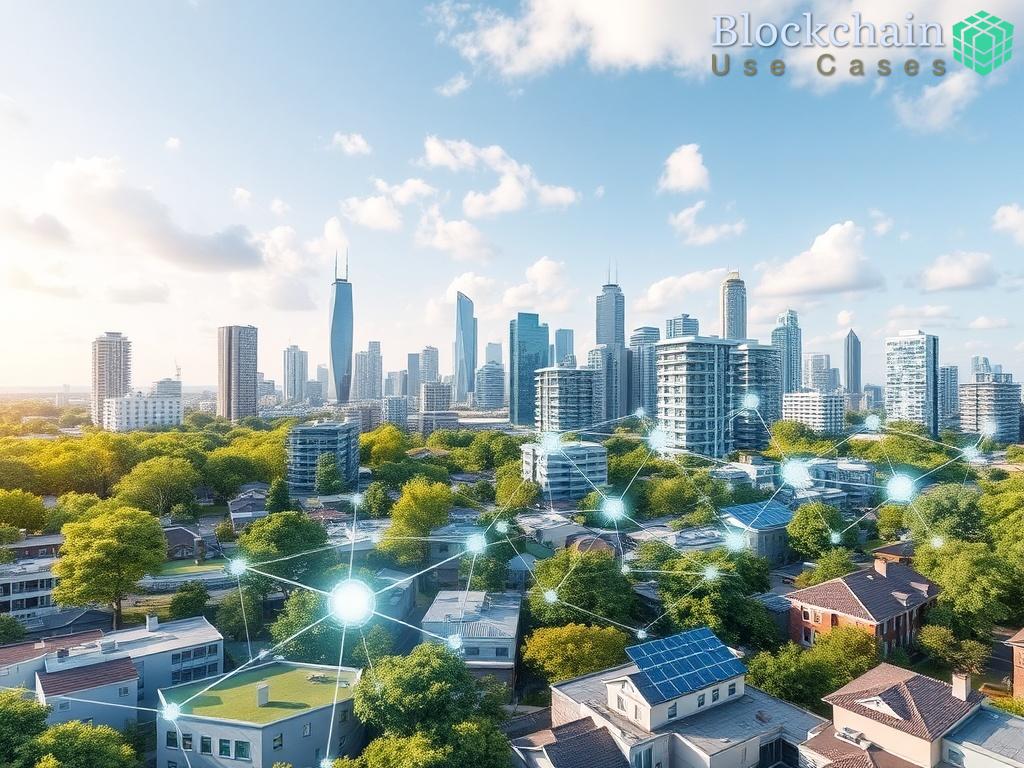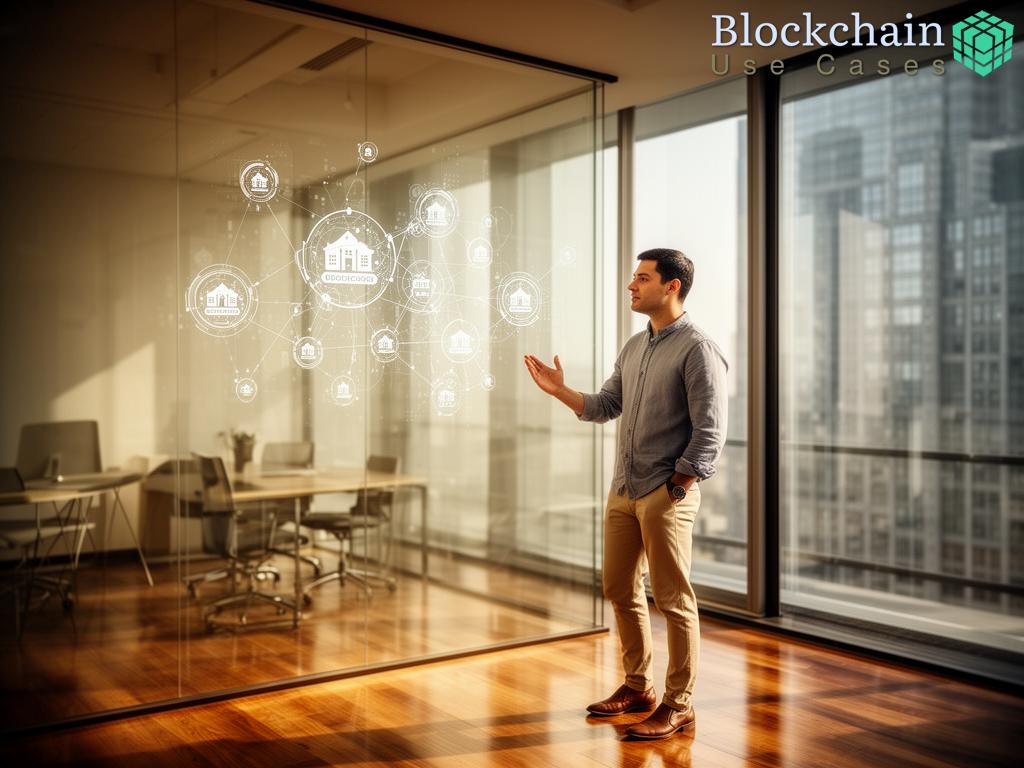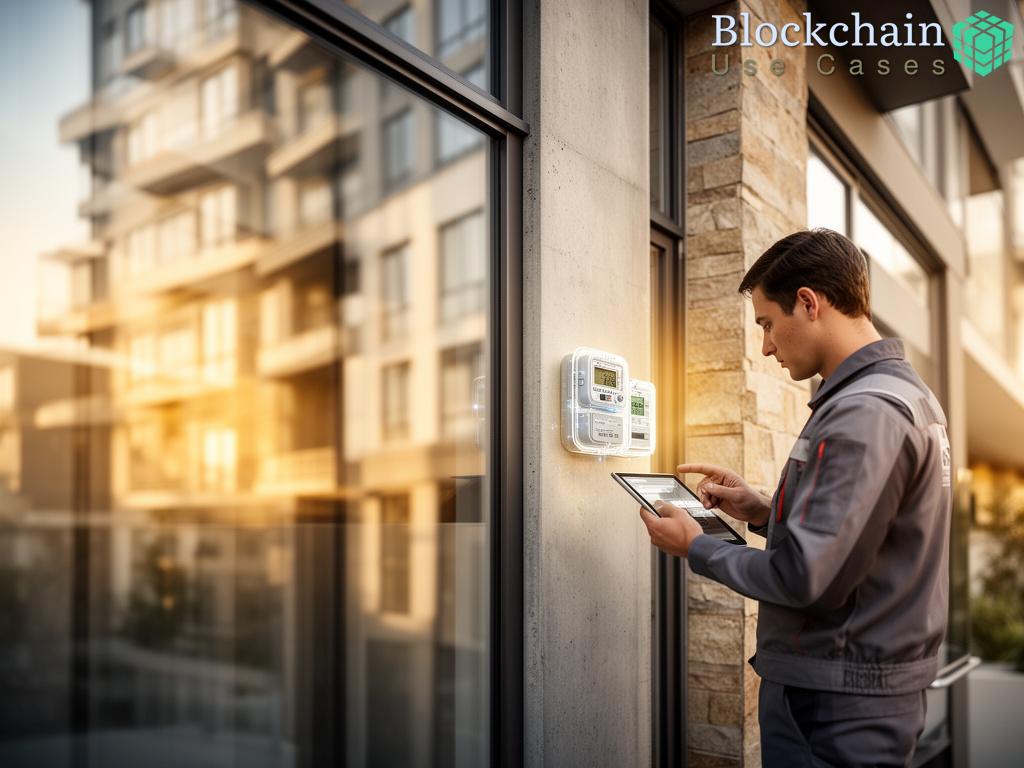Integrating Blockchain for Enhanced Data Integrity
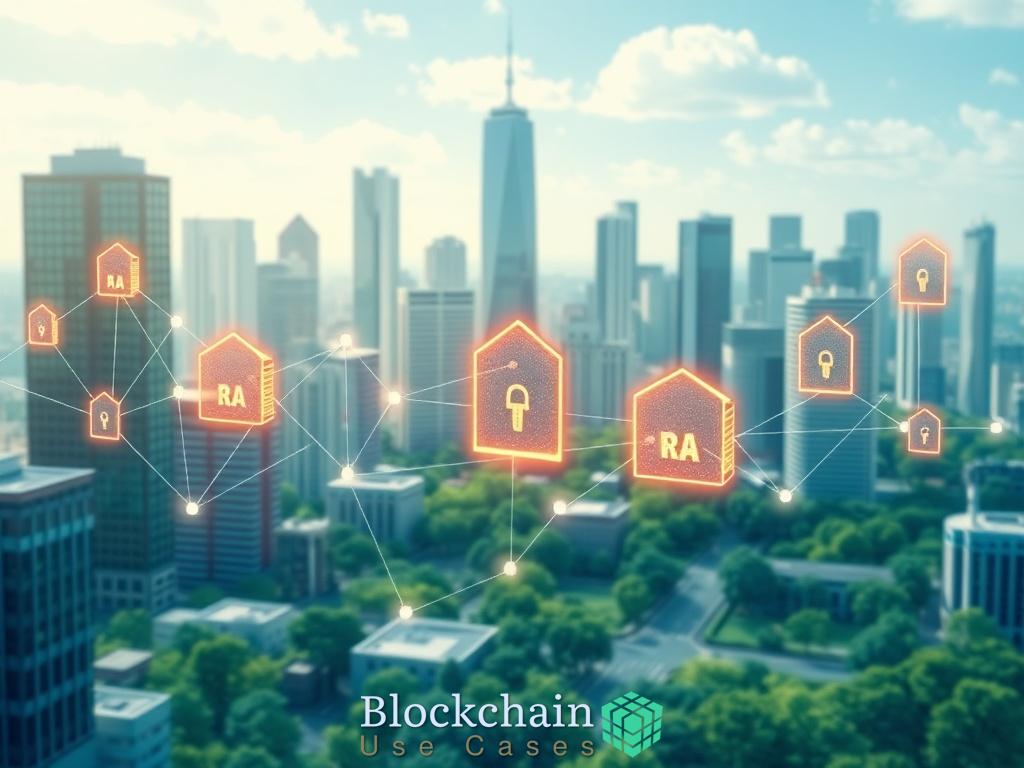
As the real estate sector faces increasing scrutiny over environmental assessments, the need for robust data integrity becomes paramount. Blockchain technology presents a transformative solution, ensuring that data related to property assessments is secure, immutable, and easily accessible. This innovation not only enhances transparency but also fosters trust among stakeholders, including buyers, sellers, and regulatory bodies.
Integrating blockchain into the real estate sector offers a multitude of benefits, particularly in the realm of environmental assessments. By decentralizing data storage and leveraging cryptographic security, blockchain enables all parties to access real-time, verified information. The following list highlights some of the key advantages of adopting blockchain technology in this context:
- Data Integrity: Immutable records prevent data tampering and ensure that all assessments are reliable.
- Transparency: All transactions and changes are recorded on a public ledger, providing clear visibility.
- Efficiency: Automated smart contracts streamline processes, reducing time and costs associated with assessments.
- Accountability: Clear chain of custody for data ensures that all parties can be held responsible for their contributions.
- Accessibility: Stakeholders can easily access pertinent data, improving communication and decision-making.
While the advantages are compelling, the integration of blockchain into real estate environmental assessments is not without its challenges. Stakeholders must navigate regulatory hurdles, ensure interoperability with existing systems, and address concerns regarding data privacy. Furthermore, the initial investment in technology and training can be a barrier for some organizations. However, with a concerted effort and strategic planning, the transition to a blockchain-based system can yield significant long-term benefits.
Streamlining Environmental Assessments through Smart Contracts
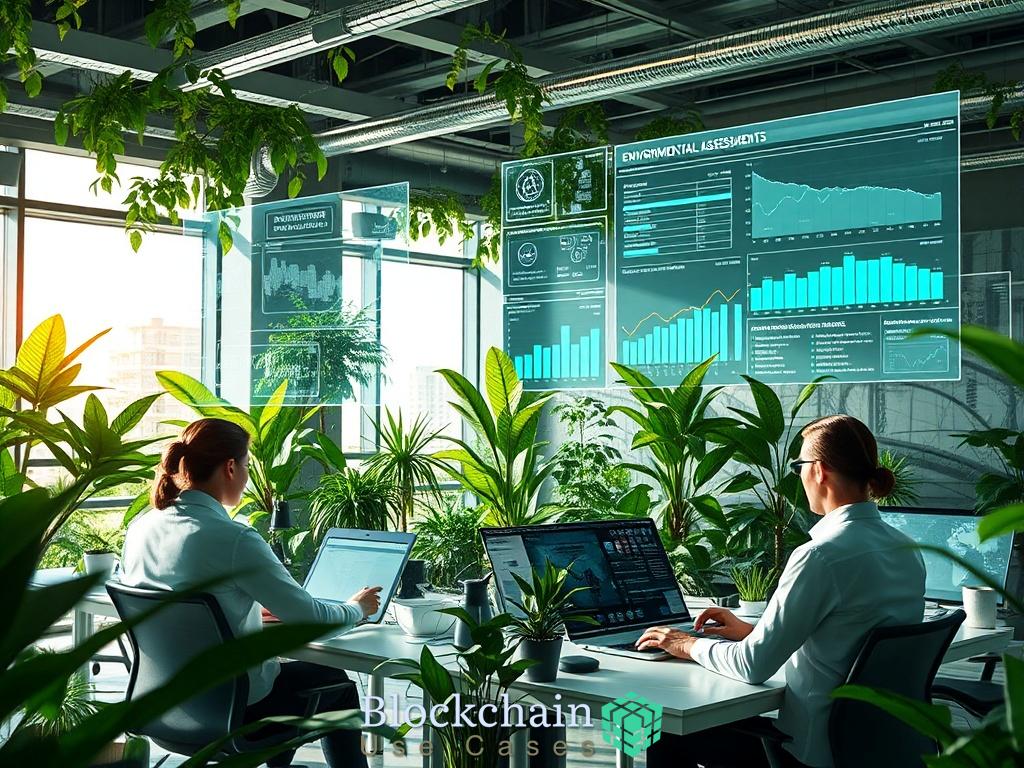
As the real estate industry evolves, the integration of blockchain technology is paving the way for innovative solutions that enhance operational efficiency. One of the most promising applications of this technology lies in the implementation of smart contracts, which can revolutionize the way environmental assessments are conducted. By automating processes and ensuring compliance with regulations, smart contracts offer an unprecedented level of security and reliability in managing real estate transactions.
In essence, smart contracts act as self-executing agreements with the terms of the contract directly written into code. This means that once the agreed-upon criteria are met, the contract automatically executes, facilitating seamless transactions without the need for intermediaries. The potential for this automation within environmental assessments is substantial, allowing stakeholders to focus on their core responsibilities while ensuring that all necessary compliance measures are met efficiently.
The application of smart contracts in environmental assessments can significantly enhance the accuracy and speed of data handling. For instance, when a property undergoes an environmental assessment, various factors such as air quality, soil integrity, and compliance with ecological regulations must be evaluated. With a smart contract in place, data from multiple sources can be aggregated and analyzed in real-time, ensuring that all required information is available to all relevant parties. This level of integration not only minimizes the risk of human error but also streamlines communication among stakeholders, fostering a collaborative environment.
Moreover, the transparency offered by blockchain technology ensures that all actions taken during the assessment process are recorded on an immutable ledger. This feature is crucial for building trust among buyers, sellers, and regulatory bodies, as it provides a clear audit trail that can be referenced if disputes arise. With every change logged in real-time, accountability is enhanced, and stakeholders can be assured that the information they are relying on is accurate and up-to-date.
In addition to improving data handling and transparency, smart contracts can significantly streamline compliance processes. Regulatory requirements in environmental assessments can be intricate and subject to frequent changes. By leveraging smart contracts, organizations can program these regulations directly into the contracts themselves. As laws evolve, the contracts can be updated to reflect the most current requirements, reducing the burden on organizations to manually ensure compliance.
Furthermore, the automatic execution of assessments through smart contracts enhances accountability. Each stakeholder’s role in the assessment process is clearly defined and tracked, ensuring that everyone meets their obligations. For instance, if a contractor must submit specific documentation or results from tests, the smart contract can be programmed to trigger payments or penalties based on whether these requirements are met on time. This level of accountability not only protects the interests of all parties involved but also drives a culture of responsibility within the industry.
Decentralized Storage Solutions for Real Estate Records
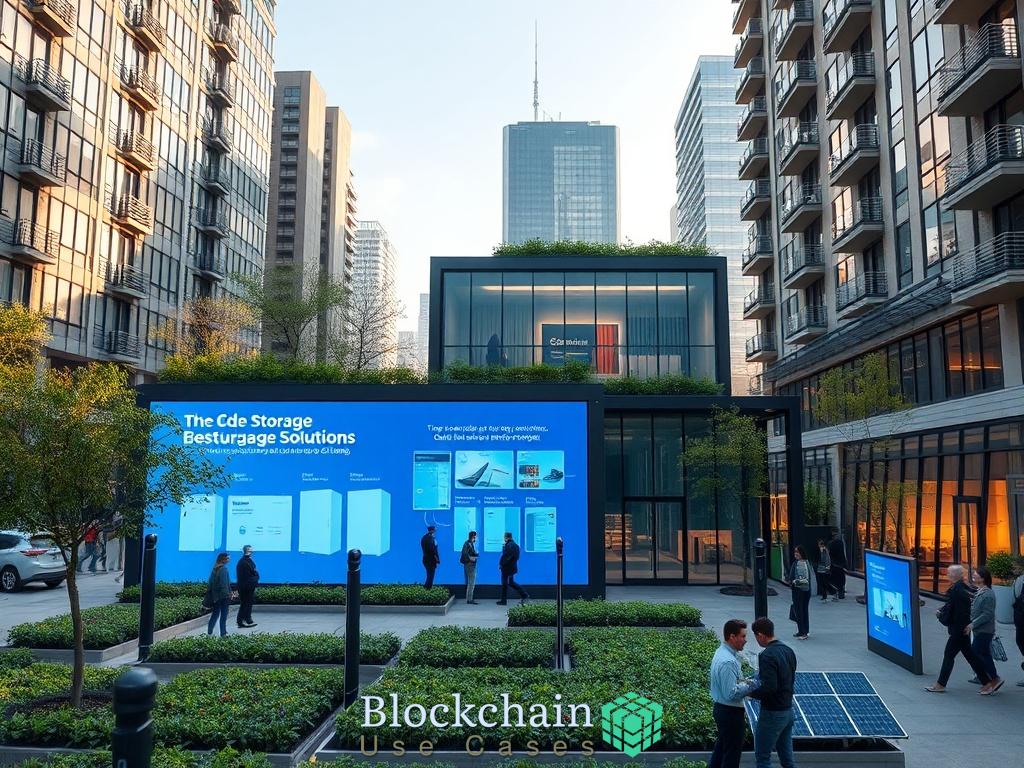
In an era where data breaches and unauthorized access to sensitive information pose significant threats, the real estate sector is turning to decentralized storage solutions. By utilizing blockchain technology, real estate records can be securely stored across a network of computers, significantly reducing the risk of data loss or tampering. This innovative approach not only enhances the security of environmental assessments but also ensures that all relevant parties can access accurate and up-to-date information seamlessly.
Decentralized storage systems operate on the principle of distributing data across a network rather than relying on a single central repository. This distribution means that even if one node fails or is compromised, the integrity of the overall system remains intact. Moreover, each record is encrypted and linked to a unique identifier, making it nearly impossible for unauthorized users to manipulate or alter critical information. The implications for real estate environmental assessments are profound, as stakeholders can trust that the data they rely on is both secure and reliable.
As the real estate landscape becomes increasingly interconnected, the ability to share information efficiently and securely is paramount. Decentralized storage solutions facilitate this by allowing various stakeholders—such as environmental consultants, property owners, and regulatory agencies—to collaborate on assessments in real-time. This collaborative approach not only speeds up the assessment process but also enhances the quality of data collected.
Through blockchain technology, all parties can access a shared ledger that records every transaction and assessment detail. This transparency fosters a culture of trust, as stakeholders can verify the authenticity of the data without relying on intermediaries. Furthermore, the integration of smart contracts can automate the sharing process, ensuring that relevant information is disseminated only to authorized parties. By enhancing collaboration and data sharing, decentralized storage solutions position the real estate industry to respond more swiftly and effectively to environmental challenges.
As we look towards the future, the adoption of decentralized storage solutions for real estate records promises to transform the way environmental assessments are conducted. By combining the security of blockchain technology with the principles of decentralization, stakeholders can create a resilient framework for managing environmental data. This evolution will not only protect sensitive information but also pave the way for more informed decision-making, ultimately leading to more sustainable real estate practices.
In summary, the transition to decentralized storage solutions represents a significant leap forward in the management of real estate environmental assessments. By prioritizing security, collaboration, and transparency, the industry can build a robust system that meets the demands of an increasingly complex regulatory landscape, ensuring that both current and future generations benefit from responsible real estate practices.
Transparency and Traceability in Environmental Compliance
The integration of blockchain technology within the real estate sector is not merely a trend; it represents a paradigm shift towards greater transparency and traceability in environmental compliance. As stakeholders increasingly demand accountability in environmental assessments, the immutable nature of blockchain provides a robust framework for ensuring that all environmental data is not only accurate but also readily verifiable. This shift is crucial in fostering trust among various parties, including buyers, sellers, and regulatory agencies, ultimately leading to more sustainable practices.
One of the standout features of blockchain technology is its capacity to create a transparent audit trail for environmental compliance activities. Each transaction related to environmental assessments—be it data submissions, compliance checks, or remediation efforts—is recorded on a public ledger. This means that all modifications and updates are visible to authorized stakeholders, significantly reducing the potential for misinformation or data manipulation. As a result, the integrity of the assessment process is preserved, and stakeholders can verify compliance with environmental regulations without relying on third-party assurances.
In the realm of real estate, where the stakes are high and trust is paramount, the ability to provide immutable documentation is a game changer. Blockchain’s decentralized nature ensures that once data is recorded, it cannot be altered or deleted without consensus from the network. This feature is particularly beneficial when dealing with sensitive environmental data that must withstand scrutiny from various regulatory bodies. For instance, if a property owner submits an environmental assessment report, all subsequent actions related to that report—such as inspections and compliance verifications—are linked to the initial document on the blockchain. This creates a cohesive narrative that stakeholders can follow, thereby enhancing accountability.
Furthermore, the transparency afforded by blockchain can be instrumental in addressing disputes that may arise during environmental assessments. Should conflicts occur regarding compliance or data accuracy, stakeholders can refer to the immutable records to resolve disagreements swiftly. This not only expedites the resolution process but also builds a culture of trust within the real estate community, as parties know that their contributions are securely documented and verifiable.
Beyond transparency and accountability, blockchain technology empowers stakeholders by providing real-time access to critical environmental data. Unlike traditional systems, where information may be siloed and fragmented, blockchain enables seamless sharing of data across a decentralized network. This accessibility means that all parties involved in a real estate transaction—be it environmental consultants, property developers, or regulatory authorities—can access the same up-to-date information, fostering collaboration and informed decision-making.
Imagine a scenario where a property developer is in the process of acquiring land for a new project. With blockchain, they can instantly access the environmental assessments related to that property, including historical data on compliance and remediation efforts. This not only accelerates the due diligence process but also ensures that developers are fully aware of any environmental liabilities before proceeding with their plans.
In conclusion, the integration of blockchain technology in managing real estate environmental assessments is paving the way for a more transparent and accountable industry. By providing immutable documentation and real-time access to information, blockchain enhances trust among stakeholders while ensuring compliance with environmental regulations. As the industry continues to evolve, embracing these technological innovations will be crucial in promoting sustainable practices and safeguarding our environment for future generations.
Impact of Blockchain on Stakeholder Collaboration in Real Estate
The advent of blockchain technology is reshaping the landscape of stakeholder collaboration within the real estate sector, particularly in the context of environmental assessments. As environmental concerns become increasingly pressing, the demand for effective collaboration among various parties—such as property owners, environmental consultants, and regulatory agencies—has never been higher. Blockchain serves as a bridge, enabling these stakeholders to share information seamlessly and securely, thus fostering a collaborative environment that is essential for sustainable real estate practices.
Enhanced Communication and Trust plays a pivotal role in stakeholder relationships. Blockchain’s transparent nature allows all parties to access real-time data regarding environmental assessments, ensuring that everyone operates with the same set of facts. This transparency significantly reduces misunderstandings and conflicts, building a foundation of trust that is crucial for effective collaboration. For instance, environmental consultants can update assessment results instantly, and all stakeholders can view these updates on the blockchain. This immediate access to information eliminates the delays often associated with traditional communication channels and empowers stakeholders to make informed decisions quickly.
Moreover, the immutable records maintained by blockchain technology provide stakeholders with a reliable audit trail. Each transaction related to environmental data is recorded in a manner that cannot be altered without consensus. This feature is particularly beneficial in the event of disputes, as stakeholders can refer to the immutable records to clarify any misunderstandings regarding compliance or data accuracy. The result is a collaborative atmosphere where parties feel secure in sharing information, knowing that their contributions are documented and verifiable.
In addition to enhancing communication, blockchain also facilitates participation from a broader range of stakeholders. Traditionally, the real estate sector has been characterized by silos, with information often trapped within individual organizations or departments. However, with blockchain, various stakeholders can engage in the assessment process more actively. For example, local communities, environmental advocacy groups, and government entities can gain access to relevant data and participate in discussions, enriching the decision-making process. This inclusivity not only leads to more comprehensive assessments but also aligns with the growing demand for corporate social responsibility in real estate practices.
To illustrate the transformative potential of blockchain, consider a scenario where a new commercial development is planned in an environmentally sensitive area. Through blockchain, all stakeholders—including the developer, environmental assessors, and community representatives—can collaborate effectively from the outset. They can share assessment data, record compliance actions, and monitor environmental impacts in real time, ensuring that the project adheres to regulatory standards while minimizing ecological disruption.
In conclusion, the integration of blockchain technology in real estate environmental assessments is not just a technological upgrade; it represents a fundamental shift towards enhanced stakeholder collaboration. By fostering transparent communication, providing immutable records, and enabling broader participation, blockchain empowers stakeholders to work together more effectively, driving sustainable practices and reinforcing trust within the industry.

